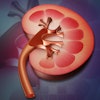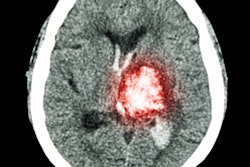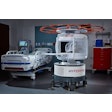
Patients' positive experience of outpatient MRI exams is influenced by factors such as short exam duration and an on-time start, Mayo Clinic researchers have found.
Focusing on improving these factors can not only improve patient care but also boost a department's or a hospital's reputation, wrote a team led by Parth Parikh of the Mayo Clinic in Scottsdale, AZ. The findings were published May 27 in the Journal of the American College of Radiology.
"Radiology has aligned itself with national patient-centered goals as illustrated by the Imaging 3.0 effort ... and [some] radiology practices have taken actions to proactively address patients' needs," the team noted. "[Those] practices that close the loop with patients in a timely fashion can tremendously boost patient satisfaction and improve national ranking."
In 2012, the U.S. Centers for Medicare and Medicaid Services (CMS) initiated a pay-for-performance system under which patient satisfaction accounts for 30% of the measures tracked, the group explained. This trend toward assessing patient satisfaction led the team to conduct its study.
"Our radiology practice [sought to understand] patient experience with the goal to provide patients a voice and to use the patient feedback to make patient-centered changes by
concurrently developing AI algorithms to process this feedback," the study authors wrote.
The investigators administered a five-point survey completed by 3,636 participants that evaluated outpatient MRI appointments conducted between March 2021 and January 2022. The investigators considered ratings equal to or less than three as negative and those equal to or more than four as positive; the survey data was analyzed using a natural language processing algorithm. The group culled patient demographics and exam information from electronic health records. Brain imaging made up 49% of the exams, and 59% were performed with contrast.
The study found that, overall, 93% of survey participants gave positive ratings of the MRI exam, with men expressing more positivity about their experience compared with women.
It also found the following:
- Median scan duration was 44 minutes, and median wait time (check in to exam time) was 47 minutes.
- Longer exam times and wait times after check-in translated to negative ratings. The most common positive themes in free text feedback were "excellent service" (84.3%), on-time service (8.4%) and comfortable IV placement (0.4%).
- The most common negative themes in free text feedback were long wait times (10.5%), poor communication (8.4%), and physical discomfort during the exam (4.2%).
- Artificial intelligence (AI) tools are poised to help the effort to improve patient experience, according to Parikh and colleagues.
AI is projected to be the next revolution in medicine and will impact all aspects of healthcare, including the patient experience, according to the authors.
"Our model is being trained to assign appropriate clinical teams to address patient feedback and predict the practice's response to patient issues moving forward," the authors concluded.





















